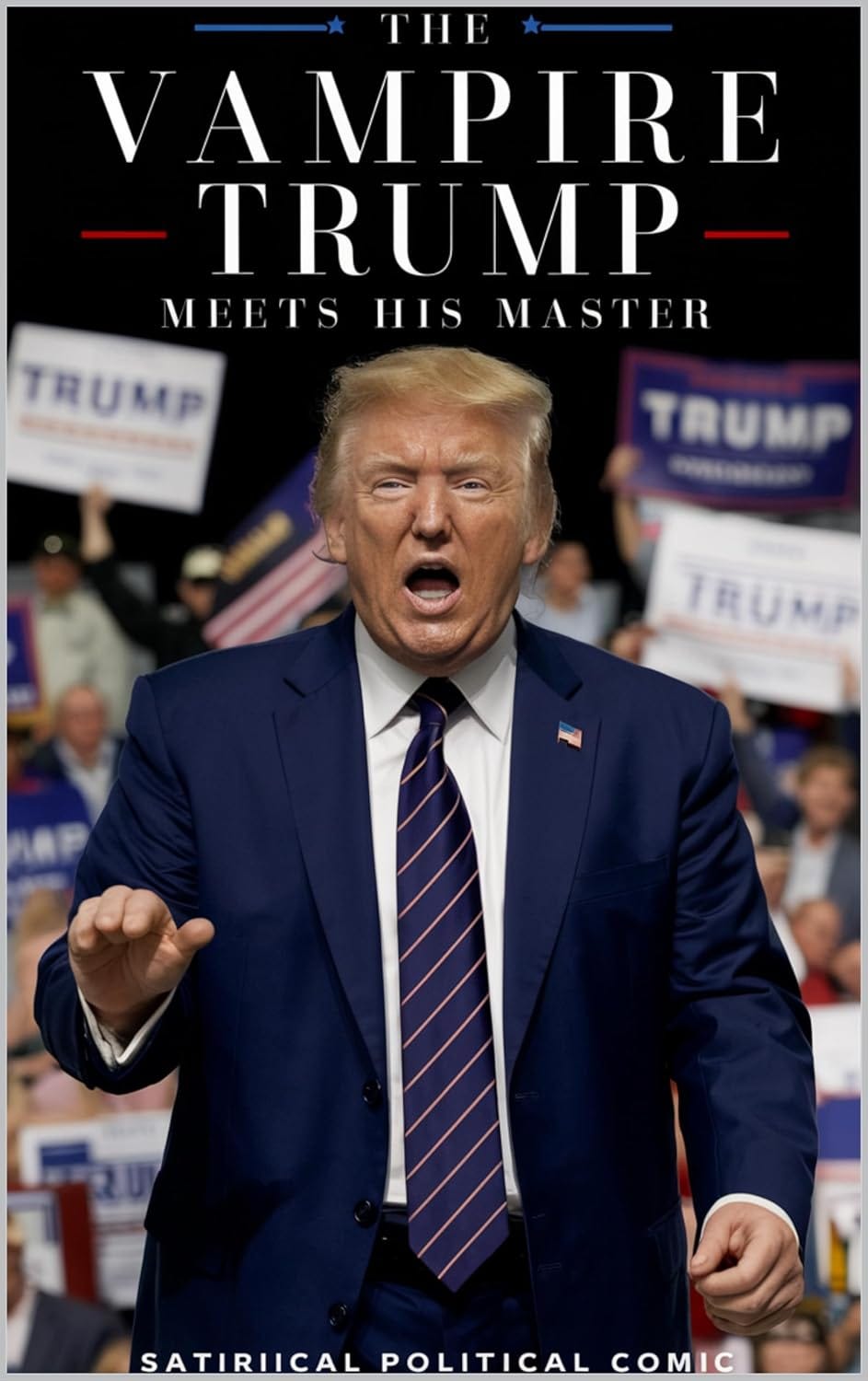ELECTION ISSUE! The Ballot or the Bullet! +free eBooks
Electioneering, free ebooks, China, Word of the Day
“This is why I say it's the ballot or the bullet. It's liberty or it's death. It's freedom for everybody or freedom for nobody. America today finds herself in a unique situation. Historically, revolutions are bloody, oh yes they are. They have never had a bloodless revolution. Or a non-violent revolution. That don't happen even in Hollywood You don't have a revolution in which you love your enemy. And you don't have a revolution in which you are begging the system of exploitation to integrate you into it. Revolutions overturn systems. Revolutions destroy systems.
A revolution is bloody, but America is in a unique position. She's the only country in history, in the position actually to become involved in a bloodless revolution. The Russian Revolution was bloody, Chinese Revolution was bloody, French Revolution was bloody, Cuban Revolution was bloody. And there was nothing more bloody than the American Revolution. But today, this country can become involved in a revolution that won't take bloodshed. All she's got to do is give the black man in this country everything that's due him, everything.” Malcolm X
Don’t think I would not do it. I totally would. It would make Mother proud.
Free eBook: The Vampire Trump Meets His Master
Technically this should be free as of 0400 NYC time, Monday.
How to Write about Law free for TODAY ONLY!
China’s Economic Future
Introduction
China’s economic future is a subject of global interest and speculation. As the second-largest economy in the world, its development trajectory directly impacts international trade, security, and economic stability. However, much of the discourse on China’s potential growth is mired in unrealistic expectations or politically charged narratives. We must take a sober, pragmatic view, weighing factors like demographics, trade relations, defense spending, and the intrinsic differences in the foreign policies of China and the United States. This article examines these aspects to provide a realistic forecast of China’s economic growth, highlighting the obstacles and potential outcomes based on the current geopolitical climate.
The Reality of China’s Growth Rate: Forecasts and Realistic Expectations
A prevailing belief holds that China could sustain an average annual growth rate of 4-5%, driven by its sheer size and resource mobilization capabilities. However, this projection might be overly optimistic. Taking into account demographic trends, economic dependencies, and political priorities, a more realistic target is likely 3-4% growth, potentially even lower.
China’s aging population is a key factor dampening its growth potential. The country’s working-age population is set to decline as millions retire or enter informal work arrangements post-retirement. There is speculation that China’s official demographics may not fully account for certain rural populations without a hukou (household registration), but even if this is the case, it would not be enough to offset the broader trend of an aging workforce. This demographic shift, coupled with political and economic pressures, means China may struggle to sustain the 5% growth target.
Beyond demographics, other factors will stifle China’s economic progress. Trade and investment from the U.S. are likely to decline as both nations increasingly turn inward and erect barriers. In addition, China is expected to invest heavily in its military, a decision that redirects funds away from productive economic sectors. Together, these conditions suggest that a 3% growth rate is a more reasonable goal, with 4% at the upper end of realistic expectations.
Geopolitical Factors: Confrontation or Cooperation?
China’s growth prospects are closely linked to its approach toward the United States. If China chooses a confrontational path under its current leadership, it may see growth as low as 2%. A hardline stance that intensifies tensions with the U.S. could trigger economic retaliation, reduce market access, and slow down essential technology transfers. Given China’s historical reliance on U.S. markets and investment, cutting these ties would severely impact its economy. Furthermore, a sustained military rivalry would drain resources that could otherwise fuel productivity and innovation.
Conversely, a policy of strategic accommodation could lead to more favorable outcomes. By maintaining stable relations with the United States and focusing on economic over military power, China could potentially achieve 5% growth, albeit with strategic compromises. This approach would require China to prioritize prosperity over geopolitical influence—a stance that is currently unlikely under President Xi Jinping’s assertive policies. Although cooperation with the U.S. could drive mutual gains, geopolitical mistrust and misperceptions present significant barriers.
Asymmetric Strategies and the Limits of Currency Power
The differences in U.S. and Chinese economic strategies stem from their distinct national interests and resources. The U.S. enjoys unparalleled economic advantages, from its status as the global reserve currency to its ample natural resources and financial stability. While China has been able to grow rapidly by leveraging a largely cashless economy and innovative digital payment systems, these advantages pale in comparison to the U.S. dollar’s dominance. China might achieve a marginal growth advantage from its cashless economy, perhaps around 0.1%, but the dollar’s role as the global reserve currency grants the U.S. a far more substantial economic edge.
Some in the Chinese Communist Party (CCP) seek to challenge the dollar’s global reserve status, hoping to increase China’s international leverage. However, such ambitions are likely unrealistic. The United States is not only resource-rich and defensible but also has a well-established record of economic resilience and stability. No matter the strategic efforts by China, including the covert methods available to the Ministry of State Security, dethroning the dollar is an improbable, if not impossible, task. The United States holds “secret economic weapons”—innovative financial tools and untapped potential that it could use to reinforce its economic dominance if challenged, maintaining peace and prosperity on its terms.
The U.S.-China Relationship: Economic Partners, Political Rivals
China and the U.S. are deeply intertwined economically, with mutual dependencies in trade and investment. Both nations share an overarching goal of prosperity, driven by hardworking populations and generally optimistic outlooks. However, these similarities are overshadowed by political tensions and mistrust. The U.S. is home to the world’s fourth-largest Chinese population, which fosters cultural ties, yet this bond is often strained by mutual suspicion and ideological differences.
The rivalry between the two nations is not necessarily an inevitable path toward confrontation. In an ideal scenario, China and the U.S. could achieve a mutually beneficial alignment of interests, promoting stability and prosperity. Unfortunately, this vision requires strong leadership, visionary policy-making, and diplomatic finesse—qualities that have not always characterized recent U.S. and Chinese administrations. The decision to adopt a cooperative or confrontational approach could profoundly influence global stability and economic growth. For now, the confrontational path appears more likely, as evidenced by China’s recent policies and the U.S. pivot toward a harder stance on China.
Potential Growth Scenarios: From Reform to Conflict
The range of possible growth outcomes for China hinges on its policy choices. At best, China could achieve a growth rate of 7%—but this would demand radical reforms in its foreign and security policies, prioritizing economic engagement and de-escalation over military ambitions. This level of growth would likely require extensive internal financial restructuring, strategic cooperation with the United States, and a focus on innovation-driven productivity rather than state-controlled industries.
On the other hand, a scenario in which China doubles down on military spending and adopts a confrontational approach could reduce growth to as low as 1%. This path would drain resources from more productive economic sectors, leading to economic stagnation and potentially exacerbating social discontent. A moderate scenario of 2-5% growth seems most likely under current conditions, as China balances growth ambitions with the costs of military spending and political tensions. It is important to note that these projections do not account for inflation or currency depreciation, which could further impact the real growth rate.
Conclusion: A Path Forward?
China’s economic future is at a critical juncture. The choices made by its leadership in the coming years will determine whether it can sustain growth or faces stagnation. A pragmatic approach, with strategic accommodations to the U.S. and an emphasis on economic priorities over military ambitions, could foster stable, long-term growth and mutual prosperity. However, if China continues on its current confrontational trajectory, it risks undermining its own economic potential and stability.
The U.S. and China share common aspirations, but their differing strategies and ambitions threaten to turn these aspirations into sources of conflict. While both nations could benefit from a policy of mutual accommodation, entrenched interests and mistrust present substantial obstacles. Without visionary leadership on both sides, a balanced, cooperative relationship will remain elusive, leaving both nations—and the world—to face an uncertain economic future.
Word of the Day
Here are the translations for the word "Vote":
1. English: Vote (n/v)
2. French: Vote (m/n)
3. Spanish: Voto (m)
4. German: Abstimmung (f) / Wahl (f)
5. Estonian: Hääl (n)
6. Russian: Голос (m)
7. Ukrainian: Голос (m)
8. Mandarin Chinese: 投票 (tóupiào) / 投票 (投票)
Translations for the sample sentence:
English: Vote for Harris because Trump is a corrupt grifter who does not keep his many promises.
French: Votez pour Harris parce que Trump est un escroc corrompu qui ne tient pas ses nombreuses promesses.
Spanish: Vota por Harris porque Trump es un estafador corrupto que no cumple sus muchas promesas.
German: Wähle Harris, weil Trump ein korrupter Betrüger ist, der seine vielen Versprechen nicht hält.
Estonian: Hääleta Harrise poolt, sest Trump on korruptne petaja, kes ei pea oma palju tõotusi.
Russian: Голосуйте за Харрис, потому что Трамп - коррумпированный мошенник, который не выполняет своих многочисленных обещаний.
Ukrainian: Голосуйте за Гарріса, тому що Трамп - корумпований шахрай, який не виконує своїх численних обіцянок.
Mandarin Chinese: 投票给哈里斯,因为特朗普是一个腐败的骗子,他没有兑现他的许多承诺。 (tóupiào gěi hā lǐ sī, yīn wéi tè lǎng pǔ shì yī gè fǔ bài de piàn zi, tā méi yǒu duì xiàn tā de xǔ duō nuò yì.)
Final line: Vote wisely! (Votez judicieusement! / ¡Vota sabiamente! / Wähle weise! / Hääleta targalt! / Голосуйте мудро!)







